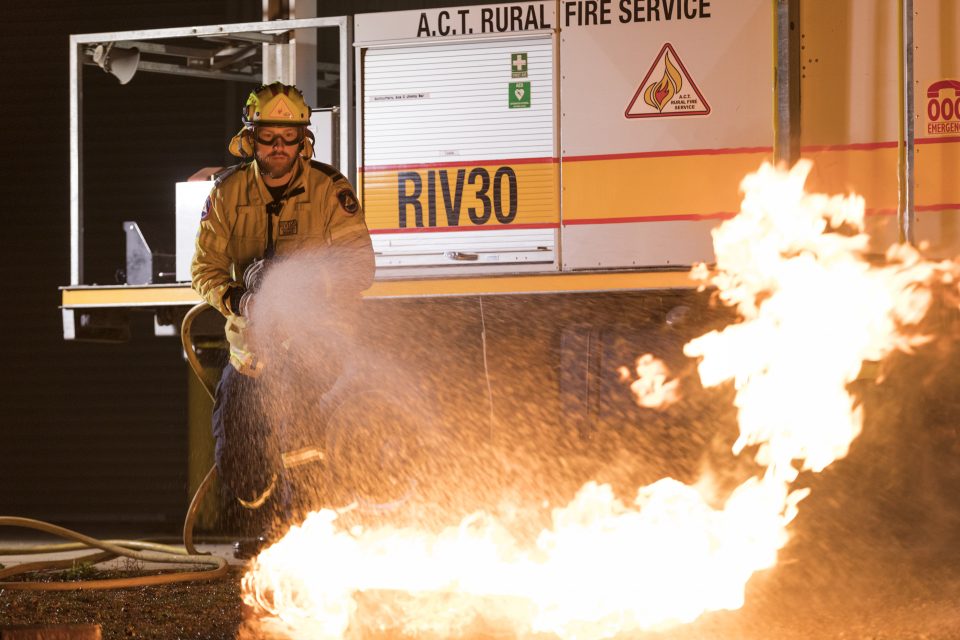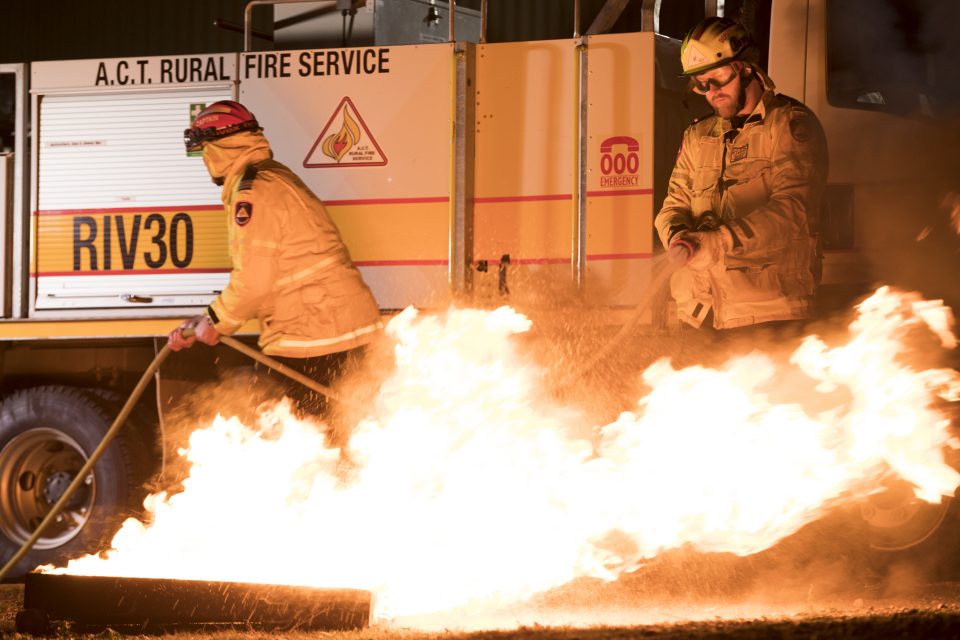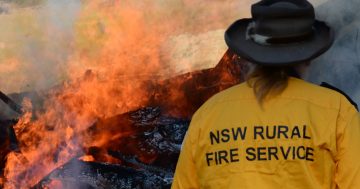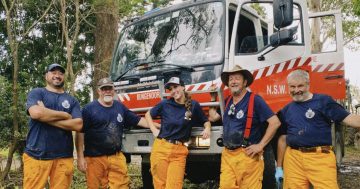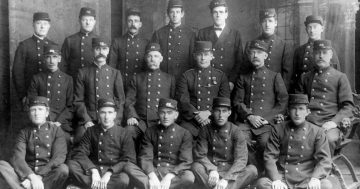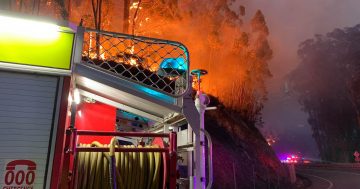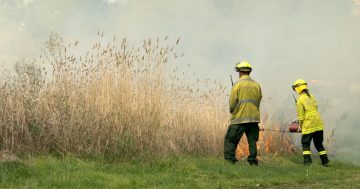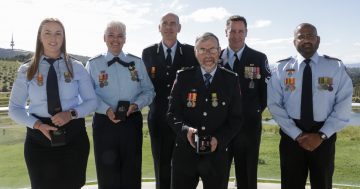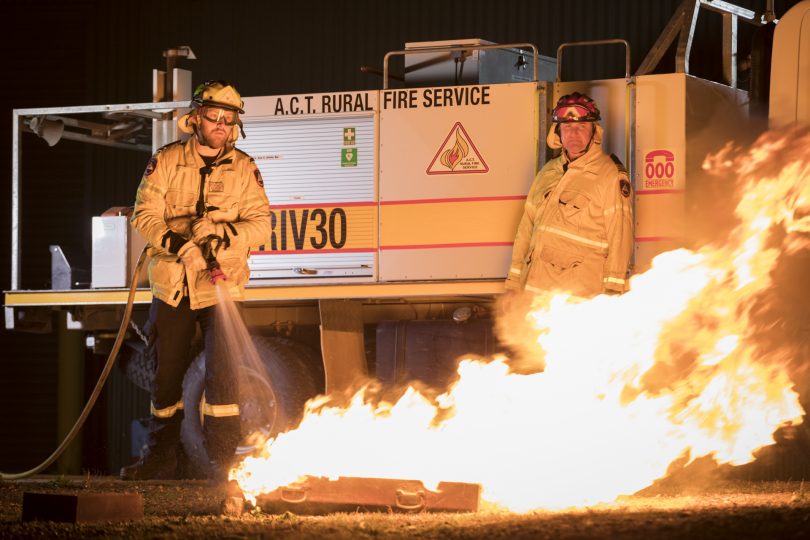
Rivers ACT RFS Brigade back at training on Thursday night (25 June). Photo: Michelle Kroll.
Almost six months after the Orroral Valley fire burned a quarter of the Territory, ACT Rural Fire Service volunteers are back on the trucks training with a new recruit in tow.
While COVID-19 forced brigades to call off some training sessions and meetings, firefighting veteran and ACT RFS Rivers Brigade Captain Mick O’Neill said it forced members to take a well-earned break after a tumultuous summer.
“I would be getting home at 2 o’clock in the morning, get up at 6 o’clock and go to work, get back at 2, 3 o’clock in the afternoon and go again,” he said.
This went on for a number of weeks as Mick and his crews helped fight the Orroral Valley and North Black Range-Palarang fires.
The RFS shed was on a constant rotation, with trucks constantly on the road and in NSW helping suppress the North Black Range fire around Bungendore and Braidwood.
“You are buggered, you are knackered,” he laughed, “but once you have the adrenaline you keep going. When things stop is when the body shuts down and you really feel it.
“I remember one night getting home and collapsing on the back deck I was so exhausted [in full uniform]. That was just fatigue.
“COVID was the best thing for myself because otherwise it would have been reset and go again. As the captain, there is a lot I have got to take care of.”


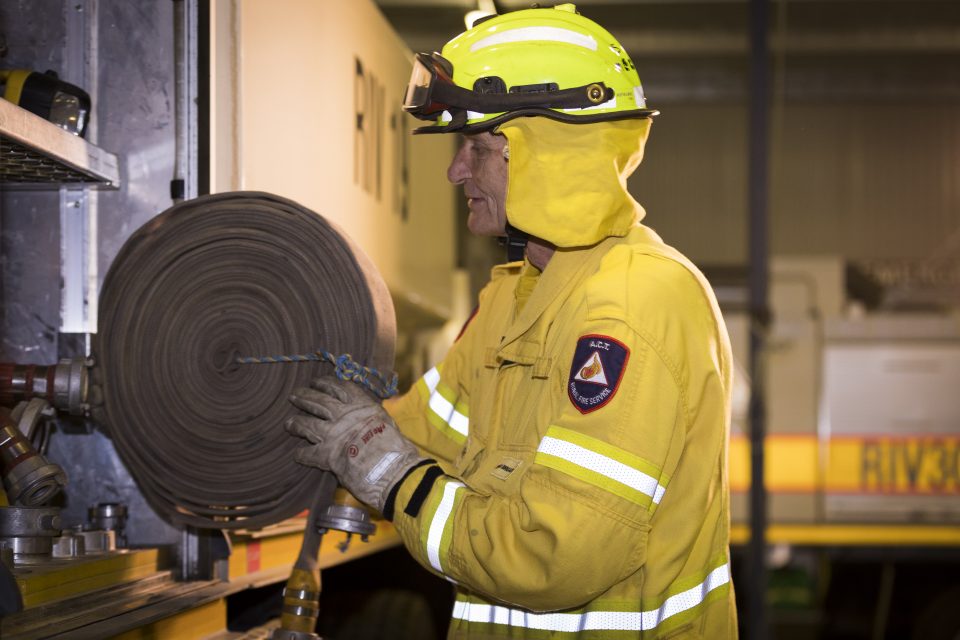
But his responsibilities don’t stop once he’s returned the truck to the shed.
“Being a project manager I have got my phone and most of the time my emails come to my phone anyway so I can just juggle things,” he said.
“You get to what you can and the other stuff gets put on hold, but people know I am away so they try not to bother me.”
Mick has been fighting fires for almost 16 years in the ACT and has been deployed to fight fires in Victoria, Queensland twice, and numerous times along the South Coast.
But nothing prepared him for last season’s black summer fires.
“If I told you the amount of hours I did you would probably shoot me for stupidity,” he laughed. “I started in Queensland back in September last year and worked my way down the coast and finished in the ACT back in February.
“From our sign-in books at the shed, I have done about 685 hours, which equates to about 17 weeks.
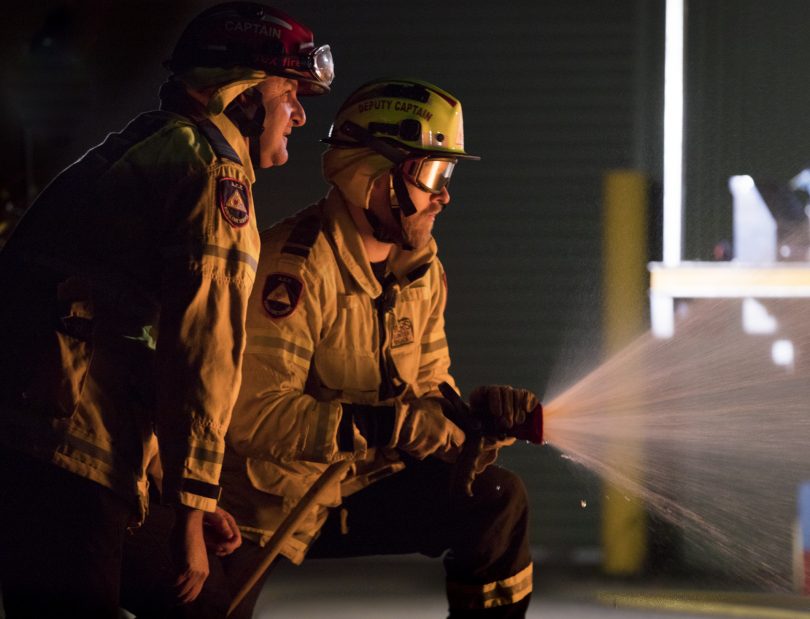
Rivers ACT RFS Brigade back at training on Thursday night (25 June). Photo: Michelle Kroll.
“[Before this], Pierces Creek is probably the biggest fire that comes to mind in recent years that I have had to deal with.”
The mental toll that firefighting takes on volunteers can be just as devastating and dangerous as the physical impact the fire has. It is a pertinent point that was not lost on Mick.
“Firefighting can be very traumatic at the best of times, it does take a toll on your wellbeing. I was there in 2009 when David Balfour was killed and I was at the incident when the tree fell on the truck here at [the Orroral Valley],” he said.
“Mentally it does take its toll.
“[But in the moment] you do just get on and do your job. That night here, just to watch everybody do their job very professionally, got the tree off the people, it was very professional to watch.”

